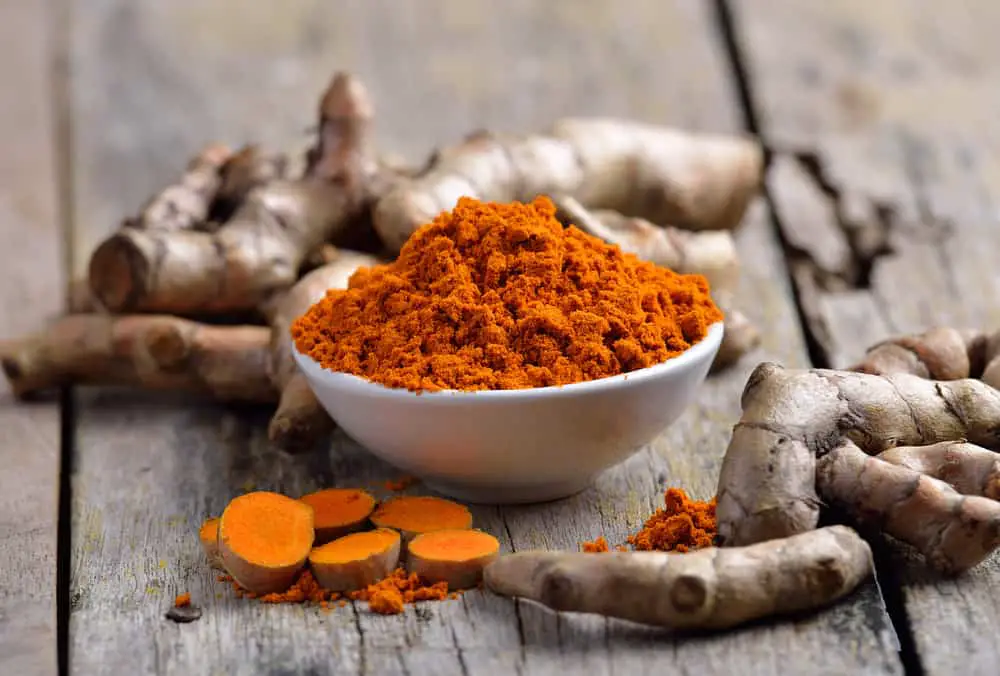Last Updated on 17th December 2021 by
Turmeric is a popular spice in Asia that’s not only used to add flavour to food, but also for the possible health benefits that it may bring. The turmeric that’s now usually used for cooking, as found in kitchens and pantries are in powder form, made from the plant’s roots.
The yellow colour that comes with turmeric powder doesn’t just add colour and flavour to the food per se, but also adds more nutrients to the dishes that you whip up, such as rice, soups, meat, and even your own rice noodles, if you fancy Asian dishes too. This is, of course, given that you stay within the limits so as not to overpower the flavour of your food and to overdo the potential benefits that you can enjoy from cooking with turmeric.
Apart from cooking, many Chinese and Ayurvedic medicine practitioners also use turmeric as a key natural medication to treat inflammatory conditions, liver conditions, and digestive problems, among many others, even in olden times.
Cooking with turmeric is now a well-loved option for many. If you’re not yet convinced of the many health benefits that cooking with turmeric can bring, here are why you should give it a try:
1. It’s A Powerful Antioxidant
You may have heard of this many times before. The body needs to have its fair share of antioxidants through eating healthy meals so that it can combat the free radicals in the body. These free radicals are chemically active molecules that can possibly cause damage to the body’s cells if left to multiply in the body.
Unfortunately, one of the most pressing effects of free radical damage is that it can lead to cardiovascular disease. Your healthy sources of antioxidants can help stop this. Turmeric is one of the most powerful antioxidants that may potentially bring that effect to your body.
Because of the high presence of antioxidants in turmeric, it may also help combat the following diseases: cataract, high cholesterol, and glaucoma.
Alongside turmeric, other powerful sources of antioxidants include:
- Leeks, garlic, and onion, particularly when you mix these into your soup. Other days, you can have an easier way to have healthy bone broth at home and still get your antioxidants from the turmeric in packed soup in cups;
- Seafood and nuts, to have as your snacks;
- Eggplant;
- Grapes and other berries;
- Avocados, for a powerful and antioxidant-rich breakfast.
2. It May Bring Strong Anti-Inflammatory Properties
Turmeric may also have good anti-inflammatory properties that are good for the body. This may work to be especially powerful and useful for individuals who suffer from arthritis and related diseases and effects.
Inflammation in the body, if temporary, is considerably fine. But, if left to prosper in the long-term, this can also become harmful, as it can then spike into chronic inflammation. This can be the pre-cursor for other diseases like fatty liver disease and diabetes.
There are many causes of inflammation in the body, like:
- Regularly consuming high amounts of sugar;
- Eating a lot of refined carbs regularly;
- Eating processed and packaged food too often.
- Turmeric powder, when added to your food or when taken as tea, may be beneficial in reducing inflammation.
3. It May Help With Cancer Treatment
For this third section, it’s important not to confuse cancer per se with cancer treatment. The benefit of turmeric here has to do with cancer treatment and not cancer. Remember that as of writing, there’s no cure yet for cancer. Treatment, in its different forms, is the best way to prolong the patient’s life and, if successful, to get rid of the cancer cells in the body. While powerful and, in most cases, effective, the different cancer treatment forms are also not without side effects.
Turmeric, when taken as a part of the cancer patient’s diet, may be helpful at combatting the side effects of cancer treatment, particularly chemotherapy. It may keep the patient’s appetite as they can breeze through the nausea better. At early levels, it may also potentially reduce the spread and growth of the cancer cells, through the high antioxidant levels of turmeric.
4. It May Be Used As A Natural Pain Reliever
Turmeric has long been used as a part of Chinese and Ayurvedic medicine for its promising ability to act as a natural pain reliever. In relation to its anti-inflammatory effects on patients suffering from arthritis, this spice can also be helpful in potentially reducing the onset of pain. By incorporating it as a part of your diet, you won’t have to be as dependent on synthetic pain relief medicine, as you now have this natural pain relief option.
5. It Can Potentially Be A Good Brain Food
Brain food refers to those that are good for your brain, to prevent neurodegenerative diseases. Turmeric is closely related to curcumin which has a blood-brain barrier that can possibly protect against Alzheimer’s disease by preventing the build-up of protein plaque in the brain, a condition that’s common in patients with Alzheimer’s disease.
With the benefits that turmeric may bring to the mind, this can also extend up to emotional aptitude, particularly for patients who may be suffering from depression and anxiety.
6. It May Help Improve Liver Function
If you have a quite bad liver history, then you’ll be keen on knowing that turmeric has high potential in improving your overall liver function. Again, this has much to do with its antioxidant components which provide your liver that needed protection against the harmful toxins that can possibly overrun it.
This is an especially good advantage for those who are taking maintenance medications which, may have detrimental effects to your liver in the long run, in spite of their good effect against your illness.
Conclusion
It’s understandable how turmeric has found its way as a common household staple. You don’t even have to include so much turmeric powder in your dishes, to enjoy the benefits. If you’re unsure how to use it, do seek the advice of a medical doctor or your trusted nutritionist. Don’t let lack of information keep you from enjoying turmeric in your food.
I'm Pauline, a mother of four grown children, my passion for cooking stemmed from the joy i get cooking for my family. I love to try new dishes, especially when dining out but creating and sharing my own recipes is my favourite thing to do!



antoninianus
Friday 21st of February 2025
5avJmGQ2jnL
ਮਿਸ਼ਨਰੀ ਸ਼ੈਲੀ ਪੋਰਨ
Thursday 20th of February 2025
xEQp0PmYu52